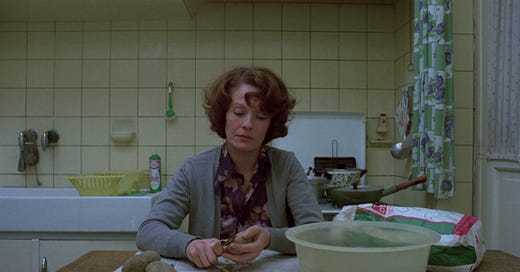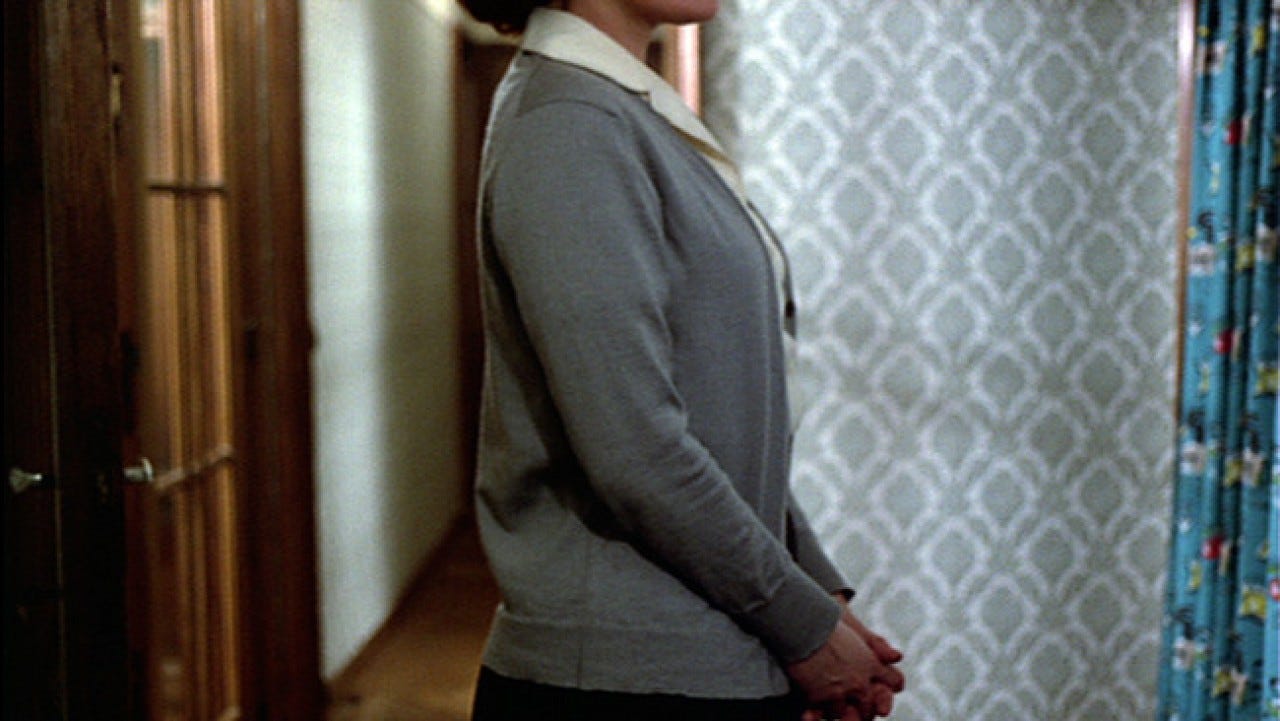Seattle’s nonprofit film organizations have been popping off lately.
In the last week, I’ve seen two masterworks of so-called “slow cinema” with long-ass titles in a theater. One of them, Chantal Akerman’s Jeanne Dielman, 23, quai du commerce, 1080 Bruxelles, even played on the biggest, best non-IMAX screen in town: The former Cinerama, which was recently taken over by the Seattle International Film Festival (SIFF).
The other film, Apichatpong Weerasethakul’s Uncle Boonmee Who Can Recall His Past Lives, played as a pop-up event for the Grand Illusion Cinema, which was forced out of their long-time location by their landlord and is now in search of a new home.
I’ll talk about both of these films in greater detail in a second, but first, let’s go back to the concept of slow cinema.
I know to some, a film that is meditative and deliberate rather than propulsive can feel like a chore. These films are often marked by “a growing sense of alienation” that expresses resignation and exhaustion.1
To me, these films render the everyday as surreal, unfathomable, or disquieting simply by bringing things to a crawl. At its best, slow cinema is like observing the world from a distance. Not necessarily an emotional distance, but an aesthetic one. Shots are held for long enough that your eyes and mind wander; character details, sounds, and environmental quirks accumulate and overwhelm.
If you’re reading this and are skeptical, I offer two highly venerated examples of this kind of film. One of them has even been voted The Greatest Film of All Time.2
Jeanne Dielman, 23, quai du commerce, 1080 Bruxelles
Streaming on The Criterion Channel.
Keep reading with a 7-day free trial
Subscribe to The Normal Newsletter to keep reading this post and get 7 days of free access to the full post archives.




